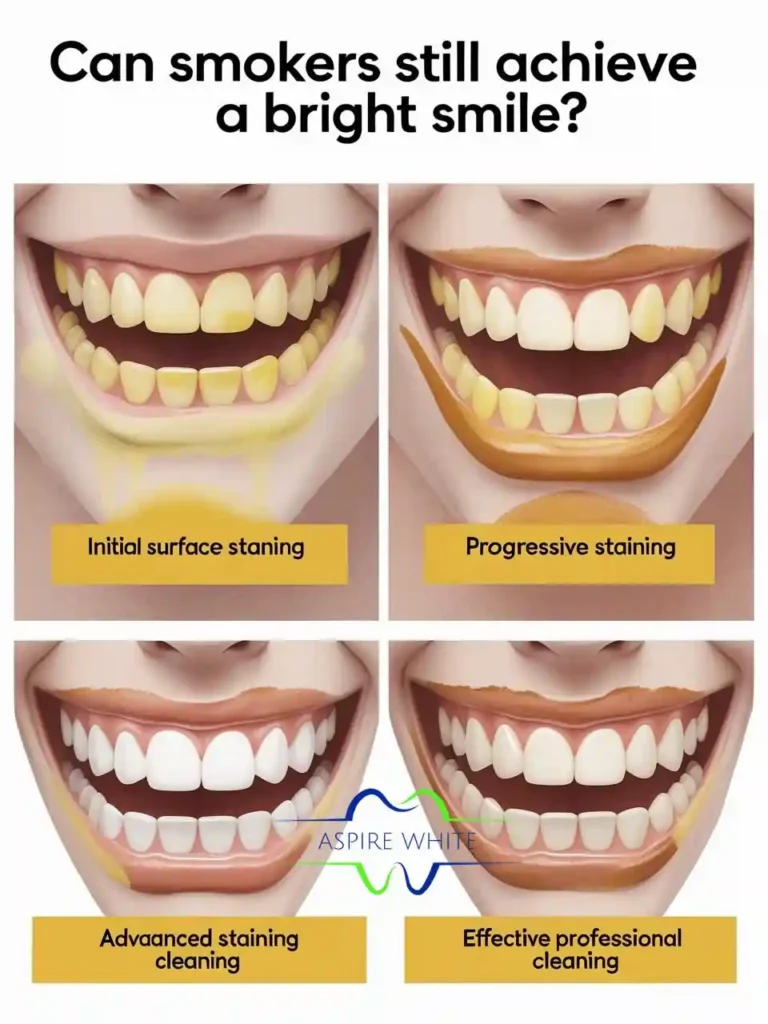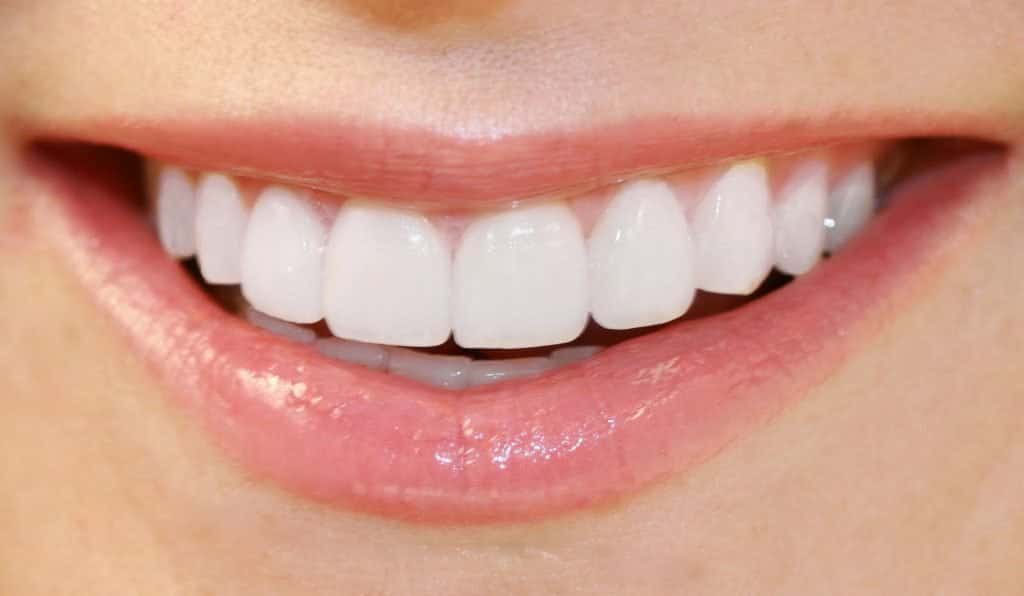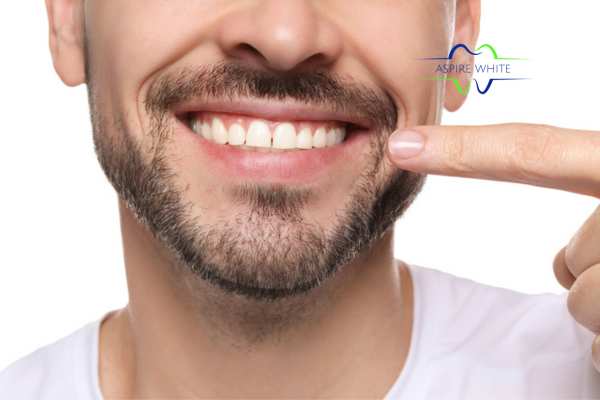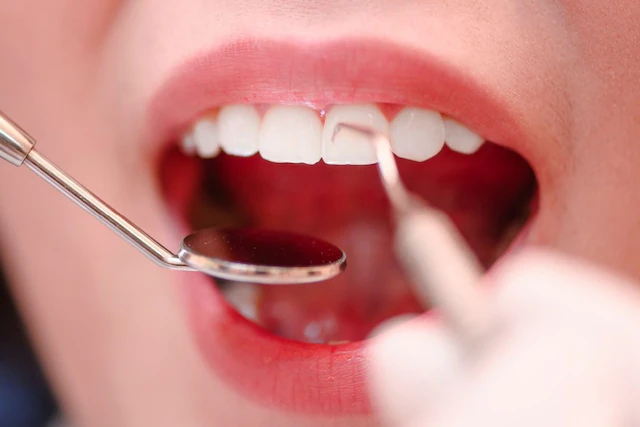Absolutely – smoking doesn’t mean you have to give up on a whiter, more confident smile. While nicotine and tar do stain teeth over time, professional whitening can lift those deep-set stains and restore brightness.
At Aspire White Hinckley, we’ve helped countless smokers achieve noticeable results with our at-home laser whitening kits. Our advanced system is designed to target discolouration caused by smoking, revealing a fresher, cleaner smile you can feel proud of – without needing to give up your daily routine.
What Does It Feel Like to Worry Your Smile Isn’t Sparkling Because You Smoke Hinckley?
It can be frustrating – you might smile less in photos, avoid laughing openly, or even feel self-conscious in conversations. Many smokers report that their teeth feel dull, no matter how much they brush.
At Aspire White Hinckley, we understand that a great smile isn’t just about looks—it’s about the confidence that comes with it.
That’s why our whitening kits are designed to be easy to use, kind to your teeth, and effective, so you can smile openly and without holding back.
Ever Wondered if Your Dream of a Bright, Confident Smile Is Out of Reach?
If you’ve been smoking for years, you may think your teeth are beyond saving. But here’s the truth – stains from smoking can often be dramatically reduced with the proper treatment.
Aspire White’s Hinckley at-home laser whitening is powerful enough to break through years of discolouration yet gentle enough for everyday comfort. So no, your dream smile isn’t out of reach. You could be just days away from seeing a noticeable transformation. See Here Laser Teeth Whitening vs. Zoom Whitening: Are They Really the Same?
How Might a Whiter Smile Help You Feel Proud, Even If You’re Still Smoking?
Confidence isn’t about being perfect – it’s about feeling good in your skin (and smile). Even if you continue smoking, having whiter teeth can make you feel more polished, more professional, and more comfortable around others.
Many of our clients report that after using Aspire White Hinckley, people notice their eyes and smile rather than their stained teeth. It’s a simple change that can significantly impact how you carry yourself every day.
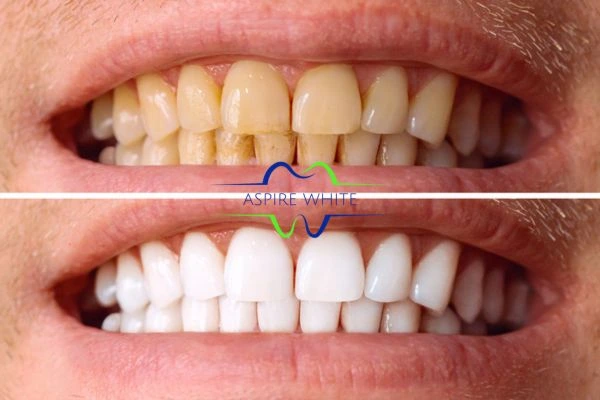
Is It Possible to Reverse Yellowing Caused by Smoking with Professional Whitening?
Yes – and the results can be surprisingly impressive. Nicotine and tar create surface and deep stains, but professional-grade whitening can break down those molecules, lifting the discolouration away.
Aspire White Hinckley uses advanced laser light technology with a whitening gel that works to restore a cleaner, whiter look to your teeth – all from the comfort of home. While the process won’t make your teeth immune to future staining, it can dramatically improve your smile in just one session.
How Often Should Smokers Visit Aspire White to Keep Their Smile Radiant Hinckley?
For smokers, stains tend to reappear more quickly than for non-smokers; regular maintenance is essential. We usually recommend starting with one full whitening session, followed by top-up treatments every 2–3 months, depending on how much you smoke and your daily habits.
With Aspire White Hinckley, you can do this all at home – no clinic visits, no complicated schedules. Just a straightforward, effective routine to keep your smile looking fresh all year round.
Should You Choose Laser Whitening, Veneers, or Bonding to Address Smoking-Related Stains?
Veneers and bonding can cover up stains, but they’re costly, require dental work, and are permanent changes to your teeth. Laser whitening, on the other hand, preserves your natural teeth and removes discolouration. Check out Can Good Gums Make Me Healthier?
Aspire White Hinckley offers an at-home laser whitening option that’s both affordable and effective, giving you visible results without the commitment or expense of cosmetic dentistry. It’s the ideal choice if you want to refresh your smile without permanently altering your teeth.
What Steps Can You Take Today to Start Brightening Your Smile Despite Smoking?
You don’t need to wait for a ‘perfect time’ to start – you can take action today. Begin by booking your Aspire White at-home laser whitening treatment.
In the meantime, drink water after each cigarette to rinse away surface residue, brush twice daily with a soft-bristled brush, and avoid other staining foods like coffee or red wine.
Small habits, combined with professional whitening, can make a world of difference in just a short space of time.
What Simple Daily Habits Can You Adopt to Protect Your Results After Whitening?
After your Aspire White treatment, maintaining your results depends on mindful habits. Rinse your mouth with water after smoking or drinking coffee, and consider using a whitening toothpaste to help prevent new stains.
Try to drink through a straw for stain-heavy drinks, and don’t skip your regular dental check-ups. These minor adjustments, combined with occasional top-up treatments, will help your smile stay whiter for longer – even if you’re still a smoker.
For The Further Information, don’t hesitate to get in touch with us today!

